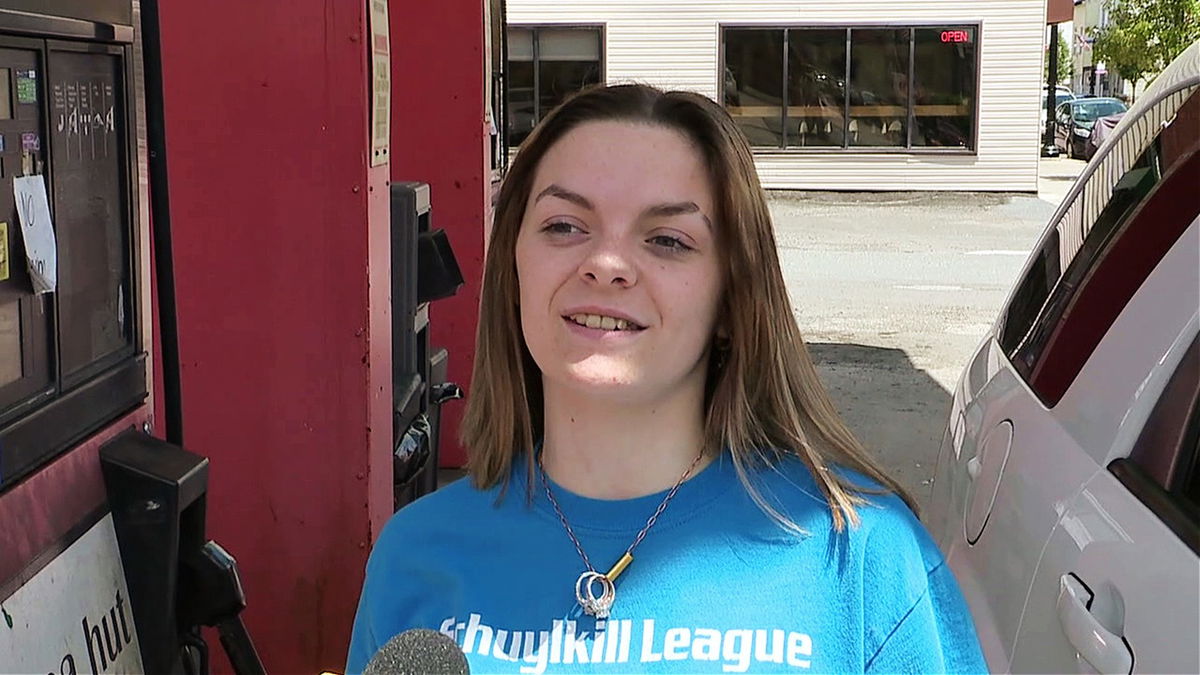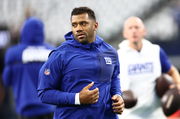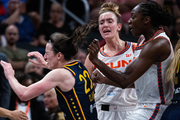

The Supreme Court of the United States recently weighed in on a groundbreaking First Amendment case, with a remarkable turn of events. The case involved a spirited 14-year-old cheerleader named Brandi Levy. The high school student faced disappointment when she was not shortlisted for the school’s varsity cheerleading team. Protesting for her stand, the young lady raised her voice to set a precedent that eventually shook the foundations of free speech regulation.
Watch What’s Trending Now!
Venting her frustration, the girl unleashed her emotions on Snapchat, a popular social media platform. In a story posted on the weekend, she and a friend raised their middle fingers with a caption that left nothing to the imagination. Her fiery message, though meant to vanish within 24 hours, was captured in a screenshot and soon reached the school’s cheerleading coaches. Soon, Levy faced the swift consequences of her off-campus post, which came off as surprisingly severe.
ADVERTISEMENT
Cheerleader makes dreadful gestures in protest
In the Snapchat video, the teen was recorded conveying, “F*** school f*** softball f*** cheer f*** everything.” After her emotional feat, Levy had evidently found herself suspended from the team for an entire year. Her actions had violated some of the school’s codes of conduct policies. Brandi said, Facing another shocking barrier, “I never thought a Snapchat post would lead to this.”
Top Stories
Cowboys Fire Defensive Coordinator Matt Eberflus: Contract, Salary, NFL Earnings & More

Adam Peaty Faces Gordon Ramsay’s Sly Dig Amid Parents’ Controversial Wedding Absence

Russell Wilson Announces Retirement Stance as Giants QB Shares Hidden Injury News

Marina Mabrey Is Raising Eyebrows Again With Fiery Unrivaled Confrontation

Huge Fire Destroys Over 125-Year-Old Golf Club Designed by 5x Open Winner in London – Report

Dolphins Reportedly Indecisive About Mike McDaniel as GM Search Kicks Off

Brandi eventually sued her school, and the outcome surfaced lately, where the judgment was in her favor. However, this declaration raised a bigger question before the Supreme Court, pointing out a different perspective. The court heard concerns about whether schools even had the authority to regulate off-campus student speech. In a historic decision, they ultimately ruled in favor of Brandi Levy. The judicial outcome affirmed her First Amendment rights, declaring that Levy’s Snapchat post was not prosecutable.
ADVERTISEMENT
Court brings justice to former cheerleader
While confirming how the girl’s act was undeniably blunt, the Supreme Court notified a positive final say for Levy. They stated that Brandi’s words did not reach the restricted speech threshold and, hence, did not match her punishment’s severity. The final declaration further stated that off-campus speech deserves no consequences unless it leads to bullying or harassment.
ADVERTISEMENT
ADVERTISEMENT
The Court’s hearing also highlighted the limitations of the Tinker decision, which previously guided school speech regulations. The Tinker v. Des Moines Independent Community School District case was a landmark Supreme Court case from 1969. It portrayed the court stating that students did not shed their constitutional rights to freedom of speech or expression inside the school. However, the Court also ruled that schools can regulate student speech that would materially and substantially violate discipline standards.
While Brandi’s ruling was groundbreaking, it is essential to note that the boundaries of regulating off-campus speech remain ambiguous. Different U.S. circuit courts have taken varying approaches to the issue, with speculations circling that the authorities intentionally left room for interpretation. The debated hearing, while safeguarding free speech, also placed some responsibility on parents, needing them to regulate their kids’ off-campus speech.
Watch This Story: Justine Lindsay, NFL’s trans cheerleader is shattering stereotypes with dancing to authenticity
ADVERTISEMENT
ADVERTISEMENT
ADVERTISEMENT
ADVERTISEMENT

